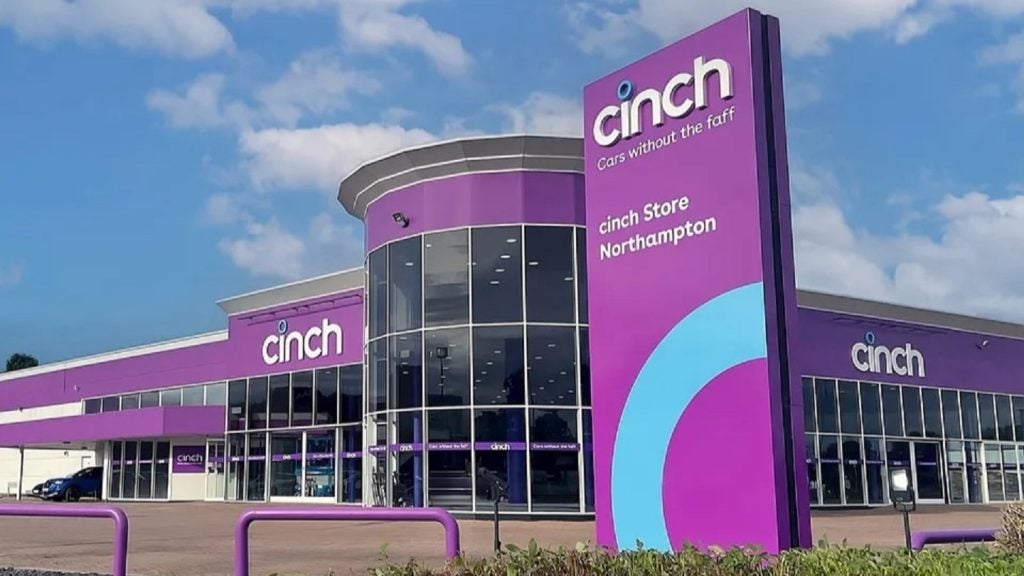
Despite its long history and large size, the German car finance market is poised for change as leasing matures and online channels develop. Sotiris Kanaris investigates
Apart from being the centre of European car manufacturing, Germany is the continent’s top car market, boasting a large number of registrations and car finance volumes.
In 2015 new passenger car registrations in Germany stood at a six-year high of 3.2 million, according to the German Association of the Automotive Industry – Verband der Automobolindustrie. Alongside the increase in registrations, car finance penetration expanded since 2009, when car-scrap bonus was introduced in Germany.
Managing director of AKA, the German automotive captive finance companies association, Heinz-Peter Renkel tells Motor Finance: "While only 60% of private customers used financial services for their car purchase in 2009, today there are well over 75% choosing to lease or finance their new car. With corporate customers and fleets, the share of financial services is even higher."
Captive dominance
According to AKA, captives are dominating the new car finance market, with a 66% share of the market. Consumer banks’ market share is approximately 22%, while commercial and savings banks account for 12% of car finance volumes.
How well do you really know your competitors?
Access the most comprehensive Company Profiles on the market, powered by GlobalData. Save hours of research. Gain competitive edge.

Thank you!
Your download email will arrive shortly
Not ready to buy yet? Download a free sample
We are confident about the unique quality of our Company Profiles. However, we want you to make the most beneficial decision for your business, so we offer a free sample that you can download by submitting the below form
By GlobalDataRenkel says that although competition has increased over the past five years, captive finance companies were able to maintain a strong position.
"In the last five years there have been new players trying to establish themselves in this market through aggressive pricing and marketing, for example ING-DiBa, Commerz Finanz and Targobank Autobank. However, the captive banks’ wide product range and close cooperation with the OEMs and dealerships have sustained their success in the market. Captive banks have even enhanced their penetration rates to 46% in the last few years," says Renkel.
Executive director at Volkswagen Bank Anthony Bandmann tells Motor Finance that the bank’s penetration rates have remained relatively stable at a high level, between 55-60% over the past three years.
Bandmann says that another reason behind the strength of captives in the market is their business model, which is based on continuity. "If you look at the last few decades, non-captives have been more flexible in entering and exiting the market. The dealers know they can rely on us when times may not be so good."
Bandmann adds that captives’ ‘all-in package’ for mobility services offers a competitive advantage over non-captive finance companies.
He explains: "It’s the aspect of mobility services as a whole which most non-captive banks are not able to offer. They can offer one portion of it and they can offer that very aggressively if they want to enter the market and capture business.
"Working so closely with the brand and the dealer bodies, we can operate as a one-stop-shop and offer a complete solution package to the end-customer. That is something that makes our business model to a certain degree unique and very hard to duplicate by a non-captive organisation."
Services on the rise
Renkel says that the bundling of these services to form ‘mobility packages’ enjoys high acceptance among consumers and has become the market standard. He adds that the interest rate is not the sole focus of customers anymore.
"The customer’s question is: ‘What is the total cost of my mobility and how can I fit it into my monthly budget?’ Renkel says.
"The captive banks recognised this trend early and were the first banking groups to add systematically a wide range of vehicle-related services to their product portfolio.
"For each leasing or finance contract today there are, on average, two additional service contracts with the customer."
Captives have grown their service contracts from 1.9 million in 2010 to 2.5 million in 2014.
"The sale of insurance products is an attractive income source for captives, as there’s no underlying equity required," says Frank Stenner, adjunct professor of automotive financial services at the University of Applied Sciences at Nuertingen-Geislingen. "Keeping repair and maintenance work within your own dealer organisation is the name of the game."
According to AKA, 53% of captive finance company customers go for a mobility package. The components most in demand are maintenance and service contracts, vehicle insurance and warranty prolongations.
The importance of additional services for captive finance companies is illustrated through the investment they have put into this area. VWFS has established a separate salesforce that goes into the workshop area of the dealership to educate service people in the dealership on the products it offers.
Bandmann says that the availability of such services strengthens customer loyalty to brand dealerships.
"As customers don’t need to buy each individual module separately, it will have a huge impact on customer loyalty for dealerships," he explains.
Dealership role still strong, but transforming
"In Germany car dealers have a prominent position. The dealer is the first and main point of contact and distribution for the customer," says German leasing association BDL chief executive Horst Fittler.
However, technology is changing the way customers engage with dealers, as the dealer role as information provider weakens.
Bandmann says: "The level of information customers have prior to their purchasing decision has increased over the years. I would say that probably 90-95% of all consumers purchasing, leasing or financing a car, prior to the choice of the vehicle, are somewhat informed through the internet. This definitely changes the role of the dealer. However, as of 2015-2016, the role of the dealer body, at least in Germany, but I think it’s the same in the UK and US, has not yet dramatically changed."
In addition, the availability of vehicle and finance information online has reduced the number of visits a customer makes to the dealership. "All the previous visits to the dealership have been replaced by visits to the corresponding website," says Stenner.
Technology can also disrupt the dealer market with more of the business of selling and financing cars taking place online.
"Captives and their OEMs will do more online business. If dealers don’t open up to these trends they will lose competence for sales, service and customer care," says Stenner.
On the other hand, Stenner says, the ‘offline dealer’ will not disappear because it is part of the German market’s DNA.
"Don’t forget you need a physical signature on the contract and this is provided by the dealership," says Stenner.
Bandmann expects the role to change in the future. "In 5-10 years, I would definitely say that the role of the dealer body will change, with the degree of change strongly determined by the individual strategy of each manufacturer."
IFA-Institute has forecasted that the number of independent dealers will shrink from 7,950 in 2011 to 4,500 in 2020.
Digitalisation
"Digital sales channels are a significant growth provider," Mercedes-Benz Bank tells Motor Finance.
According to AKA research, over half of German customers (52%) could imagine ordering a future vehicle directly on the manufacturer’s website, while 40% of respondents would be interested in concluding the matching financial service directly online.
Major captive banks, like Volkswagen Bank and Mercedes-Benz Bank, have already launched portals that offer their services through a digital channel.
Volkswagen Bank’s portal Leasingbörse offers a leasing product for young used cars. Bandmann says that customers on the portal can filter the number of vehicles according to monthly cost.
"What the customer then does is reserve the vehicle and choose a dealer using the ‘dealer locator’, which is also installed on the internet site," explains Bandmann. "After that, the customer sets up an appointment at the dealership and the dealer formalises the leasing contract."
Bandmann says the primary goal of Volkswagen Bank when it looked at online sales channels and digitalisation of its business was to do this hand-in-hand with its German dealer body. He adds that all parties involved will benefit from this.
As to the reasons behind Volkswagen’s decision to launch this portal, Bandmann says it is to increase leasing business.
"We wanted to increase the percentage of leasing because we see advantages for the manufacturer and the dealer body in
this finance product compared to pure financing or even balloon financing," says Bandmann.
Mercedes-Benz Bank says the company’s goal from the digital channel is to provide information and tools concerning financing and leasing products to its customers from the beginning, so they can choose the product that best fits their requirements.
"In the next step customers can individually arrange and calculate their financing or leasing product according to their wishes and the dealer can propose a customised offer fitting their needs," writes Mercedes-Benz Bank.
In both cases, the dealer remains the final point of contact where the customer goes to finalise the contract.
Despite simply offering a leasing product through Leasingbörse, Volkswagen Bank found that 80% of contracts generated from this channel also include additional services such as insurance and extended warranty.
Bandmann says: "One main aspect of our 10-year strategy is that we want to offer every product that is today offered exclusively through the dealer bodies through digital sales channels. That doesn’t necessarily mean that we will bypass the dealer body."
Leasing
Leasingbörse presents an opportunity for VWFS to boost its leasing volumes, an area that it is underdeveloped in Germany compared to other countries.
According to the DAT-Report 2016, only a fifth (20%) of new car buyers turned to leasing as the method to purchase a car, while for used cars the figure is as low as 2%.
Ed Paulat, managing director and executive vice-president at GM Financial Austria, Germany, Sweden, Switzerland and the UK, commented: "Fully amortising loans continue to be the most popular automotive finance product for consumers in Germany. In 2015, it was the preferred option for 70% of people who financed a new car."
Although Fittler highlights constant growth in car leasing since 2011, he specifies that growth has not been linear, as there have been fluctuations in the year-on-year growth. Last year this leasing segment grew 6%.
Fittler tells Motor Finance that over time captive finance companies’ share of new car leasing business has risen to 80% in 2014, while bank-owned companies’ share decreased to 13%.
At Volkswagen Bank Bandmann says: "If you compare the German automotive market to the UK or US market, the percentage of leasing is much lower, simply because the product is not yet as mature and developed on the consumer side. The demand for leasing on the private side has been increasing, but there’s definitely a lot of room for growth; as a result more organisations are entering the market."
This growth potential was identified by Opel Bank, which launched ‘Factor Leasing’ last year. Through this leasing product, which targets consumers and small fleet customers, the company has already experienced an increase in its leasing portfolio.
Paulat says: "In the showroom, the customer together with the sales representative selects online between a range of ‘pick and choose’ features for the model and car line and sees immediately how this influences the monthly leasing instalment. The new product enjoys high acceptance among our customers, and helps to significantly facilitate sales. After eight months, Factor Leasing accounts for almost 40% of our total new car business."
The fleet market is a strong market for industry players to target in order to boost leasing volumes. BDL finds that more than half (51%) of all companies in Germany use leasing to finance their vehicles.
Fittler says: "The leasing kilometre contract especially has made a significant leap forward. This is shown by the current CVO Fleet Barometer. Nearly every third company interviewed relies on leasing kilometre contracts. The purchase of automobiles has decreased by two percentage points down to 40%."
Used car market
The used car market is another area captive finance companies are targeting, since finance penetration is lower than the new car market.
"As there’s a higher share of cash purchasers and other banks in the used car market, there’s still a lot to gain for the captive banks," says Renkel.
The latest DAT-Report states that 58% of used car buyers did not use finance, 40% partly/fully financed, while only 2% used leasing.
"The used car finance market is more consumer-to-consumer. People sell their used car by themselves to another person," says Stenner.
In this market, the competition between finance companies is more intense as a number of non-captive banks and captive banks are operating.
Renkel says: "The captive banks have gradually entered into the highly competitive used car market and have successfully gained ground in recent years. One success factor is that the captive banks clearly target younger and more valuable used cars which are also a strength of their brand retail partners."
Captives are entering the market also to take advantage of the increased demand for used vehicles.
Bandmann says there has been an increase in demand for young used vehicles and that 2015 was a record year for VWFS in used car financing.
Renkel also says that by entering the used car market, captive banks can boost their new car sales in the long term.
He explains: "With regards to their function as new car sales promoters the used car segment is also of high value to the banks because it allows them early access to potential future new car customers. Hence, the banks can build up a connection with these customers so they are very likely to stay loyal to their brand and their financial service provider when buying a new car in the future."
Fintech competition
Co-founder of Auxmoney, a P2P platform which offers – among other loans – car finance, Philip Kamp says the reason behind the low finance penetration in the used car market is the fact that banks don’t offer small loans.
Kamp says: "I think a lot of German people don’t have access to the used car market on a finance basis because they don’t want to spend a lot of money to receive bank loans, or their credit status is not good enough to receive higher loans.
"If you want to finance a car for 3,000 (£2,325) to 5,000 in Germany there’s almost no option to do it with a classic bank."
Auxmoney – backed by American and German venture capitalists – serves the near prime car finance market. Kamp says the market the company serves accounts for 30% of German population. "This also means that 30% of the population is not getting car finance because of their weak credit history," he adds.
The P2P lender is only financing used cars and mostly older cars, cars which are five years old or older. Kamp says these cars are often not seen as potential collateral by big banks.
Bandmann says this finance avenue is on the rise, but Volkswagen Bank does not consider P2P lenders primary competitors at this point. Kamp says his competition is banks like Santander and Targo.
Auxmoney’s average deal size for a car is around 10,000, which is lower than the usual financing of a car with the classic banks. Loans start at 1,000 and go up to 25,000.
According to Kamp, the eight-year-old company has originated 100m in loans in 2015 and this year’s run rate nears 250m. He says that 25% of the loans are related to car finance.
Stenner says fintech companies will disrupt the relationship of dealers with customers and captives.
Kamp tells Motor Finance that the company aims to build up a sales team to "convince" car dealers that there is another solution for people who get rejected from the ‘traditional’ banks, and refer these customers to Auxmoney at the dealership.
"Then there’s an opportunity for them to make a more expensive loan with Auxmoney and get the car financed and without a down payment," says Kamp.
Kamp says there’s no product like that in the German market and Auxmoney would like to offer it, but lacks the distribution power because it cannot distribute the product through car dealerships.
He also says Auxmoney would be interested in partnering up with a big bank in order to serve its near prime segment.
Kamp adds that as a fintech company Auxmoney has a strategic advantage over traditional banks because the whole process is automated instead of having parts paper-backed.
He believes that Auxmoney could achieve natural growth from a future increase in the number of online car finance seekers.
"Currently in Germany around 15-20% of all loans are online. If this figure grows to 50% in the next 10 years, we will grow just by people searching for loans online, without any further marketing," says Kamp.
Deposit services
The increased use of online channels by German consumers has not only affected finance companies’ sales channels but also the creation of banks. One example is Opel Bank which launched its own online bank last September.
A difference between the German and the UK market is that in Germany there’s a much greater number of captive banks operating in the market which take deposits.
Six out of the eleven AKA members have successfully established their own deposit business in Germany: Banque PSA, BMW Bank, Mercedes Benz Bank, Opel Bank, Renault Bank and Volkswagen Bank.
Stenner in his book Handbuch Automobilbanken writes: "Captive banks have a reputation of consistently offering attractive interest rates. For private customers this is a strong motivation to open a deposit account."
Stenner says that the German market is attractive for captives to establish deposit business because the private individual is "inclined" to put his money into a bank account.
"Typically German individuals do not like to invest in capital markets, so the majority shies away from putting their money into shares," explains Stenner. "They are very risk-averse, so they prefer to put their money into bank accounts. If you take into account this preference, it is only natural that the captives would want a slice of the cake."
Renkel says captive banks’ deposit businesses mainly contribute by attracting new customers to the car brand and increase customer loyalty.
He adds that deposits are an additional pillar in refinancing the leasing and finance business of the banks.
"Captive banks with their own deposits have an extra refinancing source besides securitisations and funding through
the capital and finance markets," explains Renkel.
"This provides them with a diversified and well-balanced refinancing mix and leads to more flexibility on the side of the bank."
Regulation challenge
Paulat says the requirement for automotive finance companies to hold a banking licence has left them impacted by the banking business regulatory requirements.
"In recent years, the regulatory environment has changed significantly – with implications for resource management, IT systems or structural and process organisation," says Paulat.
A potential challenge for captive finance companies operating in the market could be the regulatory provisions currently under discussion in Brussels and Basel, for example, the ones regarding securitisation and equity requirements.
Renkel says these regulatory provisions could have considerable negative implications for the car finance and leasing sector as well as the real economy.
"Banking regulation is absolutely indispensable, but it has to allow for different business models instead of painting with a broad brush," adds Renkel.
Bandmann also mentioned the challenge market players experience from the increased consumer protection regulation.
He says: "The increase in regulation can be seen by the number of pages that have to be printed and signatures needed from the customer at the dealership to close a deal. This number has increased dramatically over the past two years.
"I think consumer protection is something which is absolutely important. On the other hand, there needs to be a balance between informing the customer in order to make a well-informed decision and not overwhelming the customer with information that he or she might not be able to handle at the end of the day."
He also believes that the tightening of consumer protection regulation is going to be an ongoing trend for years to come.







